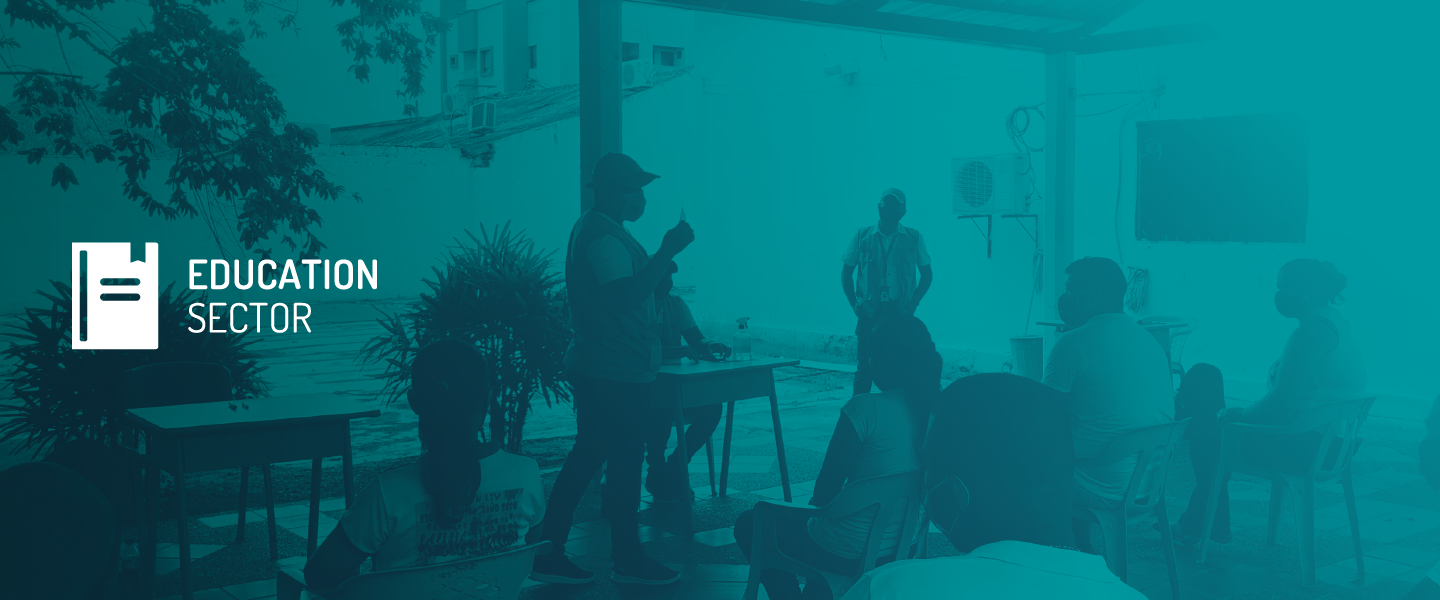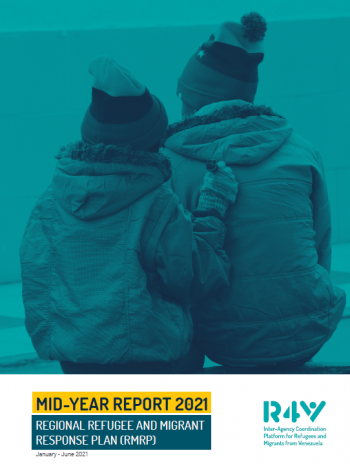Key Figures
What is the Education Sector?
PRIORITY NEEDS
The challenges in education have been severely exacerbated by the impact of the COVID-19 pandemic across the region. Since March 2020, as COVID-19 spread in the Latin America and the Caribbean (LAC) region, Ministries of Education (MoE) progressively closed schools at preschool, primary and secondary levels. It is estimated that over 159 million children (69.5 million girls) have been affected in LAC, representing more than 97 per cent of enrolled learners. Refugees and migrants from Venezuela have been particularly harshly affected. For example, the National Platform in Peru (GTRM, by its Spanish acronym) estimates that by the end of August, over 50 per cent of refugee and migrant children remained outside of the Peruvian education system while the Platform in Colombia (GIFMM, by its Spanish acronym) reports that during the COVID-19 emergency, 27 percent of households with children from Venezuela aged between 6 to 11 years with the intention to stay, and 37 per cent of households with children aged between 12 to 17 years did not have access to formal learning activities. Similar findings have been made in other countries of the region. Among the reasons for Venezuelan children not attending school are reduced financial resources of refugee and migrant households, lack of access to IT devices and internet connectivity, discrimination and xenophobia, and lack of documentation.
Across the region, there is an urgent need to fully include refugee and migrant children into education systems and policies. This urgent need is exacerbated for those refugee and migrant children and adolescents from Venezuela who arrive without documentation. There is also a significant absence of frameworks or mechanisms for the recognition, validation, and accreditation for non-formal and informal learning outcomes of undocumented refugee and migrant children and adolescents This situation has become one of the main barriers to access education in host countries. In some cases, children can attend schools, but without the possibility of certifying their grades due to a lack of such documentation. Finally, girls and adolescents face additional vulnerabilities and barriers to return to schools due to household responsibilities, child labor, gender-based violence (GBV), and early pregnancy.
Response Strategy
The regional Education Sector promotes regionwide coherence in the education response through evidence generation and knowledge management for advocacy and policy dialogue, capacity development, monitoring and reporting, and resource mobilization, integrating gender, age and diversity approaches. The regional response will focus predominantly on the countries hosting the largest numbers of refugees and migrants from Venezuela (Colombia, Ecuador, Chile, Peru and Brazil) but will seek to expand its support to the Southern Cone, the Caribbean and to Central America and Mexico in 2021.
Response priorities:
Complementing national efforts of direct assistance, the regional Education Sector aims to:
Generate Advocacy and Policy Dialogues: Implement evidence-based policies and normative frameworks to increase access & retention of refugee, migrant & host community children in education with quality, dignity and ensuring equity, non-discrimination, and inclusion.
Capacity Development: Enhance the capacity of regional and national education stakeholders to ensure access, permanence and learning outcomes for refugee, migrant and affected host community children, as well as to increase the resilience of the education system.
Evidence Generation: Ensure MoEs have access to reliable, accurate, relevant, and timely data disaggregated by gender and age on access and learning of refugee and migrant children to strengthen the education planning capacities of hosting countries.
Integrated response approaches:
For the Education Sector, the promotion of actions with a multisectoral and gender- and age-responsive approach will be maintained within its scope of coordination and advocacy. The Sector will collaborate with relevant Sectors, Working Groups and Focal Points on issues related to Child Protection, Gender, Gender Based Violence (GBV) and Protection from Sexual Exploitation and Abuse (PSEA); coordinate with the Health Sector on mental health and psychosocial support (MHPSS) and sexual and reproductive health; develop and apply joint strategies with the WASH Sector to enhance safe water and hygiene measures in schools; and work with the Nutrition and Food Security Sectors to improve the provision of school meals for refugee and migrant children from Venezuela.
Calendar
| Sun | Mon | Tue | Wed | Thu | Fri | Sat |
|---|---|---|---|---|---|---|
|
31
|
1
|
2
|
3
|
4
|
5
|
6
|
|
|
|
|
|
|
|
|
|
7
|
8
|
9
|
10
|
11
|
12
|
13
|
|
|
|
|
|
|
|
|
|
14
|
15
|
16
|
17
|
18
|
19
|
20
|
|
|
|
|
|
|
|
|
|
21
|
22
|
23
|
24
|
25
|
26
|
27
|
|
|
|
|
|
|
|
|
|
28
|
29
|
30
|
1
|
2
|
3
|
4
|
|
|
|
|
|
|
|
|


